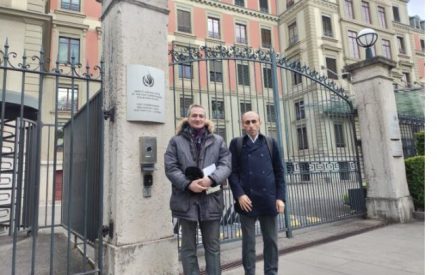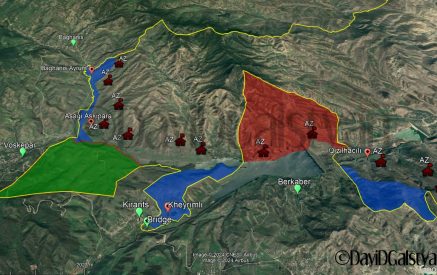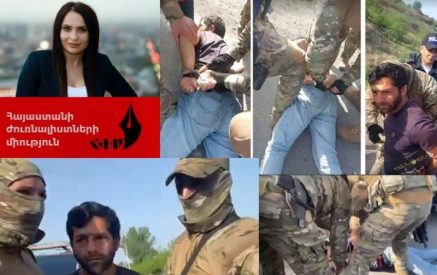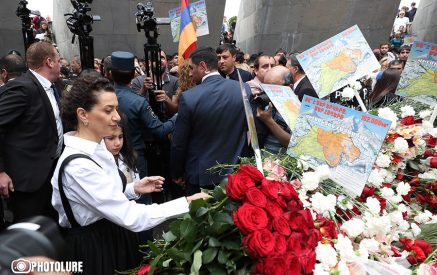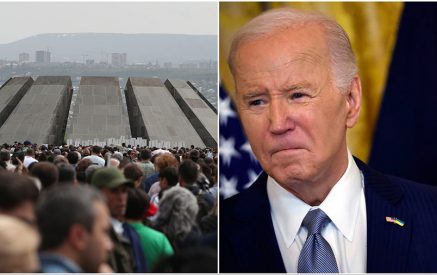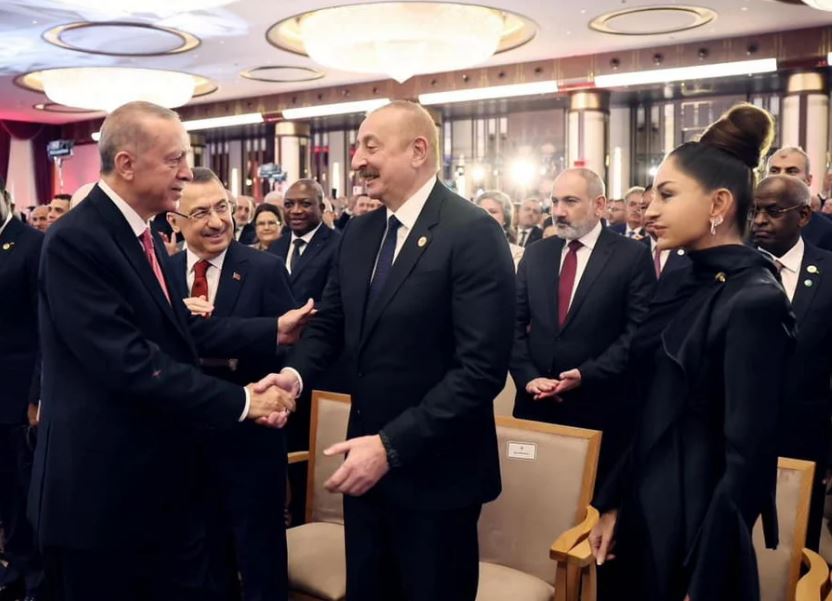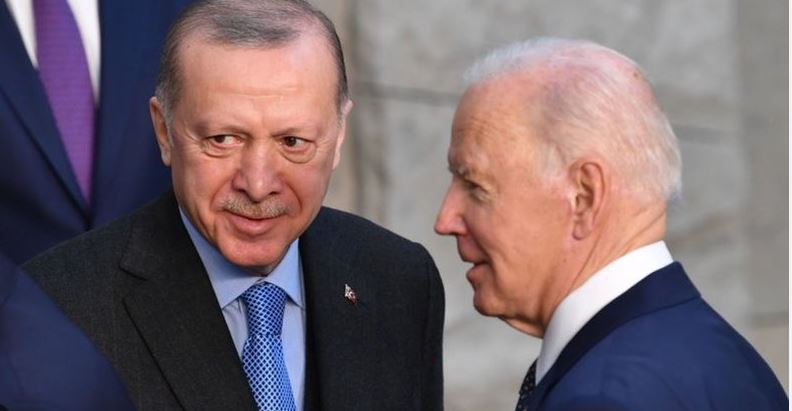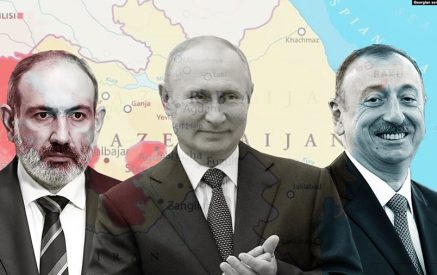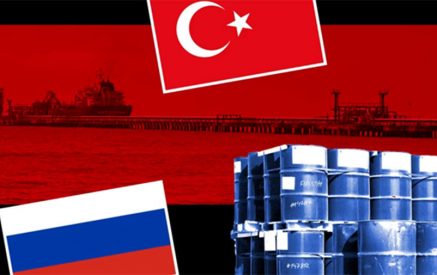by Stepan Piligian
We are living in dangerous times, when extremes have become a powerful presence, creating uncontrolled instability. Our modern history offers compelling evidence. The Committee of Union and Progress (Young Turks) came to power in the pre-WWI Ottoman Empire, when a wave of constitutional reforms reduced the power of the corrupt sultanate. The CUP used its power to drive the crumbling empire into wars and genocidal policies in a vain attempt to restore the territorial glory of the Ottoman past. Instead, they degenerated into the lowest form of human existence, with the genocides of the indigenous Armenians, Assyrians and Greeks and the depopulation of Christian communities, creating an infrastructure void due to their central economic role. Another extreme followed with Mustafa Kemal Atatürk’s secular but ultranationalist policies that Turkified the nation while building institutional discrimination against the remaining non-Turks.
Extremists often gain power based on a reaction. Hitler assumed power in the 1933 election on a promise to restore the dignity and prosperity of a nation that had not recovered from its crushing defeat in 1918. His warped sense of national pride quickly became a racist policy of exterminating the substantial Jewish community during the Holocaust, leading Germany into utter destruction once again. One of the reasons the West undertook post-war reconstruction in Germany and Japan was to prevent another reactive government from taking advantage of a frustrated and defeated population. The investment eventually resulted in stable and trusted allies in modern Germany and Japan. Radical policies and leadership rarely solve problems but rather create them. A quick review of of extreme leadership in Rwanda, Cambodia, Bosnia and Darfur illustrates their tragic connection with genocide. Quite often they provoke economic decline and instability, such as the recent history in Venezuela.
Read also
The work of extremes is not always violence but rather manifests in political ineffectiveness. The United States is not immune to this phenomenon. Many Americans are frustrated by the gridlock and inefficiency of the political process in Washington, caused not only by the conflict between the two political parties but the growing ideological divide and obstructionist thinking within our nation. There was a time when the predominant political thinking in Washington ranged between left and right of center. President Kennedy was a moderate who would probably have an identity problem with the Democratic Party today. Likewise, Eisenhower and the Bushes would have similar challenges with today’s Republican Party. We just witnessed about half a dozen representatives hold up the election of a House speaker for nearly a month. There was a time when it was considered a vital responsibility of partisan colleagues to “reach across the aisle” to empower our democracy. That aisle gets wider as the fringes of each party gain power. Representatives who dare to vote in a bipartisan manner are deemed disloyal. Regardless of which party is in power, the opposition sees its role as obstructionism rather than collaboration and compromise. Meanwhile, polls show that most Americans reside in the middle of the ideological spectrum and are frustrated with the low productivity of Congress. Politics is a dirty business, but our system of remarkable checks and balances works best when we find ways to work together. Extremism only produces a lack of results and reduction in public confidence that we see today. Ambivalence is a dangerous attribute in a democracy.
The contemporary Armenian nation has been severely impacted by external extremist thinking. Putin has been very clear about his belief that the collapse of the Soviet Union was a profoundly negative event. His long tenure as the leader of the Russian Federation has been driven by the desire to restore some form of Russian hegemony. As we have learned, painfully, he and Lavrov have a unique definition for the term “ally,” closer to a vassal state or a subordinated “strategic partnership.” While Putin has worked to recover former Soviet territory either by overt aggression (Abkhazia, South Ossetia, eastern Ukraine) or through regional influence (Belarus, Central Asia, the Caucasus), Russia has become isolated and weakened. In desperation, Russia has looked east to China to align with another extremist power, setting a dangerous global dynamic. Putin is enabled by an autocratic political process with virtual authority, particularly in foreign affairs.
Turkey’s Erdogan is slightly constrained by the remnants of a pseudo-democracy that he has worked diligently to weaken over the past two decades. Erdogan is enamored by Turkey’s criminal Ottoman past and talks openly of returning some of its former glory. After decades of secular societal institutions, Erdogan advocates a more Islamic Turkey. Perhaps his most dangerous beliefs lie in the Ottoman pan-Turkic policies, which fueled the Armenian Genocide and today have led to a radical alignment with Azerbaijan. His regional thinking on Nakhichevan, “Zangezur,” “one nation, two states” and other issues is aligned with the racist policy of pan-Turkic political and territorial unity. The Republic of Armenia is in his sights, just as the western highlands and Cilicia were the target of the Ittihads. These are not reasonable people. His administration has an insatiable appetite to remove all non-Turks in its path of regional unity – a constant and dramatic reminder that the Turks have not honored any agreement they have signed. The Republic of Turkey has made a mockery of the Treaty of Lausanne that diminished Armenian rights. Its meddling in the Armenian church is a clear, systemic, decades-long violation. The November 2020 ceasefire agreement in Artsakh has been ignored from day one. We evolved from negotiations for guarantees of the rights and security of Artsakh’s Armenians to the deportation of an entire population. The Azeris and Turks will honor no agreement, given their global strategy. We should work towards peace but never become dependent on trusting their commitments. We must be wary of the extremes they harbor in their foreign policy towards Armenia.
The behavior of Israel is on the minds of many Armenians today. It has been difficult for Armenians to understand the Jewish state’s deadly relationship with Azerbaijan and refusal to recognize the Armenian Genocide, given our shared histories. Hamas is an extremist group, but it came to power partially because of the brutal and oppressive policies that Gaza has been subjected to over the last 30 years. Netanyahu’s policies are extreme and supported by those who feel justified in pursuing territorial encroachment and subjugation. The war in Gaza has degenerated from the right to self-defense, to retaliation, to unthinkable carnage. The killing of innocent Israelis by Hamas is unconscionable, but is the killing of thousands of Palestinian civilians any different? Netanyahu’s policies will not bring peace to Israel. His actions are creating new recruits for the Palestinian cause, who are growing up with destruction, death and hopelessness. There are many who disagree with the policies of Israel and are clearly not anti-Semitic.
The answer lies with reasonable people in Israel, Gaza and the West Bank understanding that the Jews and Palestinians are not leaving. Moderate policies in Israel will empower moderate leadership in Palestine. Gaza is a virtual prison with all support infrastructure controlled externally. Over 80-percent of residents depend on humanitarian aid and have lost hope. Hamas has radical views of Israel, and Israel has policies that have significantly divided their nation. This is tragic, but change can only happen with moderate thinking. We have two extremes fighting each other, and it will result in more problems than solutions. Do we desire peace enough to compromise?
Armenia is facing a similar dilemma. We are negotiating with extremists who have little appetite for compromise. The only buffer is the fragile support of western nations and duplicitous Russia. Compromise is usually the recipe for peace and stability. In a sea of uncertainty, Armenia must pursue parallel paths of forming alliances with reliable security partners and building military infrastructure while negotiating with unreliable parties. Will that formula work, considering our adversaries lack credibility? What is the required threshold of trust? Can physical guarantees (i.e. peacekeepers) overcome the credibility gap of extremists?
I have always felt that labeling contributes to division. We should vote or advocate on an issue-to-issue basis, not based on pseudo loyalty to a party or person. On some issues, I support a liberal position, and others a more conservative policy. I find it unfortunate when we are packaged into a convenient label with generalizations. If we focus on the mission, we will rarely fail. As Armenians, we tend to spend too much time criticizing others rather than articulating a path that supports a vision. Investing in neutralizing others is polarizing and widens the gap to eventual compromise. Avoiding the edges of the political spectrum offers all of the best possibilities for stability.



